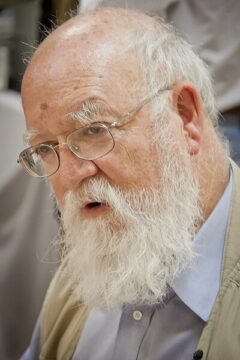Daniel James Sharp at The Freethinker:
In your memoir, you say that it is important to know the history of philosophy because it is the history of very—and still—tempting mistakes. Do you mean, in other words, that philosophy can help us to avoid falling into traps?
 Exactly. I love to point out philosophical mistakes made by those scientists who think philosophy is a throwaway. In the areas of science that I am interested in—the nature of consciousness, the nature of reality, the nature of explanation—they often fall into the old traps that philosophers have learned about by falling into those traps themselves. There is no learning without making mistakes, but then you have to learn from your mistakes.
Exactly. I love to point out philosophical mistakes made by those scientists who think philosophy is a throwaway. In the areas of science that I am interested in—the nature of consciousness, the nature of reality, the nature of explanation—they often fall into the old traps that philosophers have learned about by falling into those traps themselves. There is no learning without making mistakes, but then you have to learn from your mistakes.
What do you think is the biggest and most influential philosophical mistake that has ever been made?
I think I would give the prize to Descartes, and not so much for his [mind-body] dualism as for his rationalism, his idea that he could get his clear and distinct ideas so clear and distinct that it would be like arithmetic or geometry and that he could then do all of science just from first principles in his head and get it right.
More here.
